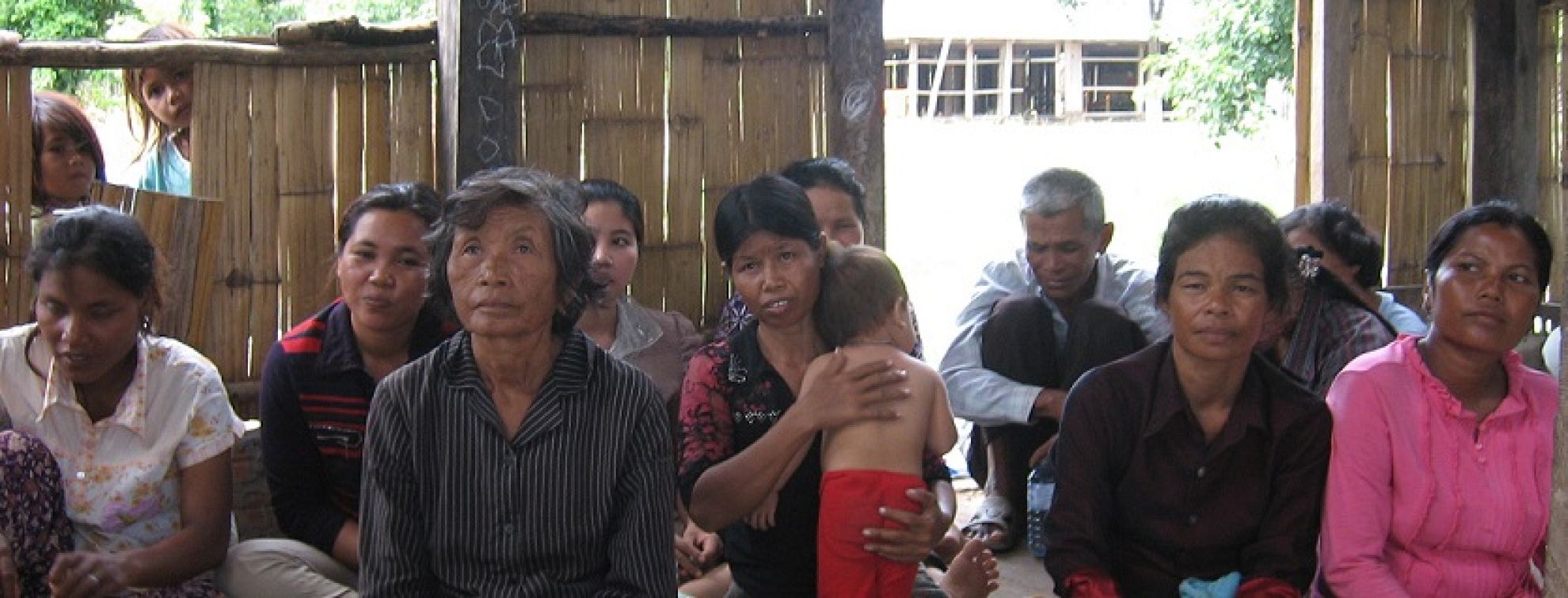
Improving malaria outcomes through positive deviance approach
28 April 2014Malaria Consortium’s new Learning Paper released today reflects on our work to contain the impact of malaria on mobile and migrant populations in north-west Cambodia, through an approach known as positive deviance. The project findings indicate that this innovative community-based approach can be a successful behaviour change communication tool for malaria prevention and control.
There is growing evidence of the emergence of artemisinin resistance along the Cambodia-Thailand border and significant efforts have been underway for a number of years to contain its spread. In 2009, Malaria Consortium facilitated a workshop with regional partners to develop a cross-border behaviour change communication strategy, resulting in recommendations to implement activities with a particular focus on mobile and migrant populations.
Positive deviance has already been implemented in a number of countries to identify positive behaviours associated with maternal and newborn health, family planning, female genital mutilation and HIV/AIDS. This pilot project – carried out by Cambodia’s National Centre for Parasitology, Entomology and Malaria Control, with technical support from Malaria Consortium and funding from the Bill & Melinda Gates Foundation – is the first time the approach has been used for malaria prevention and control.
Positive deviance involves identifying people who, despite sharing similar living conditions and resources with the rest of their community, are already demonstrating positive, preventative and care-seeking behaviours for malaria. These individuals are then encouraged to share those behaviours with the rest of their community.
The Cambodia pilot project focused on mobile and migrant workers and resident communities in three villages in Sampov Luon, in the north-west of the country. Many migrant workers look for work in this area during planting or harvesting seasons, arriving with families or in groups and stay for up to four months. For these communities, malaria is one of the most common diseases.
The first phase of the project aimed to understand current behaviours around malaria prevention and control and identify role models from the community. In the second phase, interactive strategies were implemented to share the role models’ behaviours with the rest of the community. In 2012, surveys assessed community members’ views of the project and the extent to which there had been lasting behaviour and attitude change towards malaria prevention and control.
The project has been effective in increasing knowledge about malaria and improving health-seeking behaviours, such as consulting village malaria workers or visiting a health centre for malaria diagnosis and treatment. Community involvement was key to the success of the project.
The project also found that the positive deviance approach could be applied in a variety of contexts – for example at public health facilities, private clinics and private health providers – to improve the use of malaria services. A range of other recommendations relating to positive deviance and malaria are provided in the full Learning Paper, Positive deviance: An asset-based approach to improve malaria outcomes.
Latest news
- Malaria Consortium honoured by Ugandan government for contribution to combat malaria23rd April 2024
- International summit calls for AMR accountability in public health interventions21st March 2024
- Global SMC community celebrates new milestone at SMC Alliance Annual Meeting in Nigeria6th March 2024
- Scaling up key interventions could halve pneumonia-related childhood mortality13th February 2024
- Malaria Consortium and eGov Foundation join Mozambique’s national malaria programme to digitalise seasonal malaria chemoprevention campaigns8th February 2024
- World’s first malaria vaccine rollout launched in Cameroon22nd January 2024